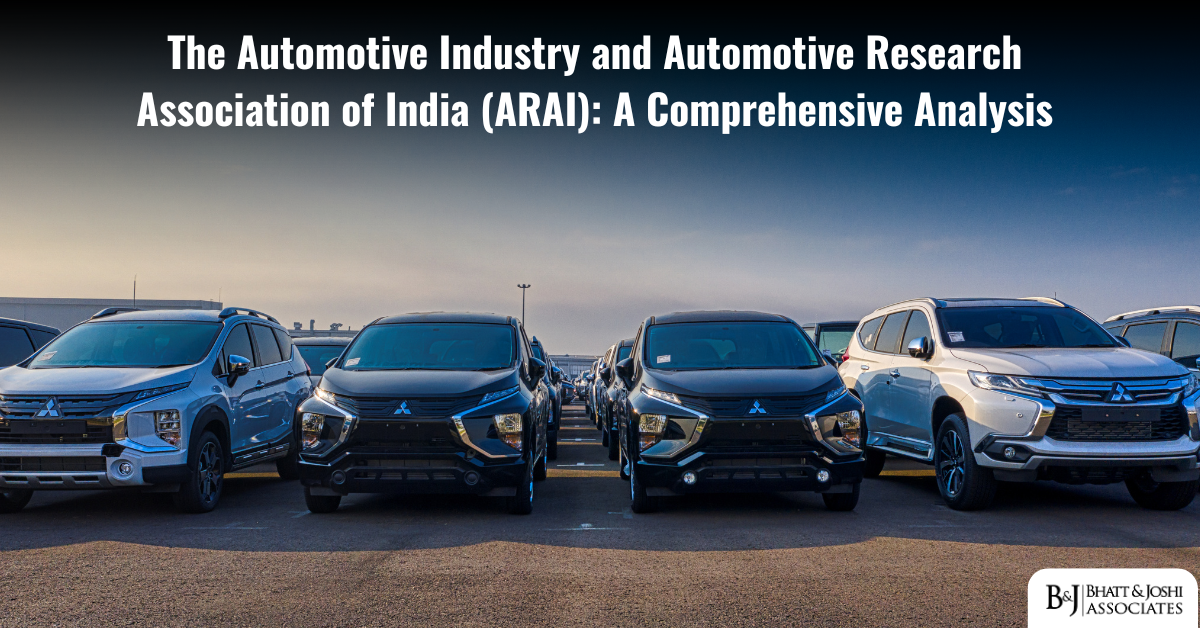Introduction
The Automotive Research Association of India (ARAI) stands as a pivotal institution in India’s rapidly evolving automotive landscape. Established in 1966 as a cooperative industrial research association, ARAI has transformed into the country’s premier automotive research and development organization. This comprehensive analysis explores the multifaceted role of ARAI in shaping India’s automotive sector, its contributions to technological advancement, and its impact on the industry’s regulatory framework.
The automotive industry represents one of the most dynamic sectors of the Indian economy, contributing significantly to the nation’s GDP and employing millions of workers both directly and indirectly. Within this context, ARAI serves as the technical advisor and knowledge partner to the automotive industry and government authorities, playing a crucial role in ensuring the sector’s sustainable growth while maintaining international standards of safety and environmental protection.
Historical Evolution of Automotive Research Association of India (ARAI)
The journey of Automotive Research Association of India (ARAI) began during a transformative period in India’s industrial history. In the mid-1960s, recognizing the need for a dedicated research and development institution for the automotive sector, the Ministry of Industry, in collaboration with the automotive industry, established ARAI in Pune, Maharashtra. The choice of location was strategic, considering Pune’s emerging status as an automotive manufacturing hub and its proximity to major industrial centers.
The initial years focused on building basic testing capabilities and establishing fundamental research infrastructure. Through the 1970s and 1980s, ARAI gradually expanded its scope, incorporating more sophisticated testing facilities and developing expertise in various automotive technologies. The economic liberalization of the 1990s marked a significant turning point, as ARAI adapted to meet the challenges of globalization and increased competition in the automotive sector.
Organizational Structure and Governance
Automotive Research Association of India operates under a unique organizational structure that combines governmental oversight with industry participation. The institution functions as an autonomous body under the Ministry of Heavy Industries and Public Enterprises, Government of India. This arrangement ensures both operational independence and accountability to public interests.
The governance structure comprises a Governing Council representing various stakeholders, including government officials, industry leaders, and technical experts. This diverse representation enables ARAI to maintain a balanced approach in its operations, considering both regulatory requirements and industry needs. The day-to-day operations are managed by a professional team led by the Director, supported by various technical and administrative departments.
Core Functions and Responsibilities of ARAI
ARAI’s mandate encompasses a wide range of activities crucial to the automotive sector’s development. At its core, the institution serves as the primary vehicle testing and certification body in India. This responsibility includes conducting homologation tests, issuing type approval certificates, and ensuring compliance with various automotive standards and regulations.
Beyond testing and certification, ARAI plays a vital role in developing automotive standards and regulations. The institution works closely with the government in formulating policies related to vehicle safety, emissions, and performance standards. This collaborative approach ensures that regulations are both technically sound and practically implementable.
Testing and Certification Services
ARAI’s testing infrastructure represents one of the most comprehensive automotive testing facilities in Asia. The institution maintains state-of-the-art laboratories equipped with advanced testing equipment for various automotive components and systems. These facilities enable testing across multiple parameters, including safety, performance, emissions, and durability.
The certification process involves rigorous testing protocols aligned with both national and international standards. ARAI’s type approval certificates are recognized globally, facilitating Indian automotive exports and ensuring compliance with international regulations. The institution regularly upgrades its testing capabilities to accommodate technological advancements and evolving regulatory requirements.
ARAI’s Role in Research and Technological Development
Research and development form a cornerstone of ARAI’s activities. The institution maintains dedicated research centers focusing on various aspects of automotive technology, including powertrain engineering, electric and hybrid vehicles, safety systems, and materials technology. These centers collaborate with industry partners and academic institutions to develop innovative solutions for the automotive sector.
ARAI’s R&D initiatives particularly emphasize sustainable mobility solutions. The institution has been at the forefront of developing electric vehicle technologies, alternative fuel systems, and advanced emission control systems. These efforts align with national objectives of reducing environmental impact and achieving energy security.
Regulatory Framework
Automotive Research Association of India operates within a complex regulatory framework governed by various laws and regulations. The Motor Vehicles Act, 1988, and its subsequent amendments provide the primary legal basis for ARAI’s certification activities. The Central Motor Vehicle Rules (CMVR) further detail the technical requirements and testing procedures that ARAI must follow.
The institution actively participates in regulatory development through its technical expertise and research findings. Key regulations influenced by ARAI’s input include emission norms, safety standards, and vehicle performance requirements. The implementation of Bharat Stage emission standards represents a significant example of ARAI’s contribution to environmental regulation in the automotive sector.
International Collaborations
Automotive Research Association of India maintains extensive international collaborations to stay abreast of global automotive developments and ensure alignment with international standards. The institution has formal partnerships with various international automotive research organizations, testing facilities, and regulatory bodies. These collaborations facilitate knowledge exchange, technology transfer, and harmonization of testing standards.
Notable international partnerships include collaborations with European, Japanese, and American automotive research institutions. These relationships have enabled ARAI to adopt best practices in testing and certification while contributing to global automotive research and development efforts.
ARAI’s Impact on the Indian Automotive Industry
ARAI’s influence on the Indian automotive sector extends beyond its regulatory and testing functions. The institution has played a crucial role in enhancing the sector’s technological capabilities, improving quality standards, and fostering innovation. Through its various initiatives, ARAI has helped Indian automotive manufacturers compete effectively in global markets while ensuring their products meet international safety and environmental standards.
The institution’s support for small and medium enterprises in the automotive component sector has been particularly significant. ARAI provides technical assistance, testing services, and knowledge support to help these companies improve their product quality and manufacturing processes. This support has contributed to the development of a robust automotive component manufacturing ecosystem in India.
Future Outlook and Challenges of ARAI
The automotive industry faces significant transitions with the emergence of electric vehicles, autonomous driving technologies, and connected mobility solutions. ARAI is actively adapting to these changes by developing new testing capabilities and research programs focused on future mobility technologies. The institution is also expanding its infrastructure and expertise to address emerging challenges in areas such as cybersecurity, artificial intelligence, and advanced driver assistance systems.
However, several challenges require attention. These include the need for continuous infrastructure upgradation, development of new testing protocols for emerging technologies, and maintenance of testing quality while managing increasing demand. Additionally, ARAI must balance the need for stringent regulations with the industry’s capacity to implement changes.
Conclusion
The Automotive Research Association of India (ARAI) has established itself as an indispensable institution in India’s automotive ecosystem. Its comprehensive approach to testing, certification, research, and development has contributed significantly to the sector’s growth and technological advancement. As the automotive industry continues to evolve, ARAI’s role in ensuring safety, environmental protection, and technological innovation becomes increasingly critical.
The institution’s success in adapting to changing industry needs while maintaining high standards of technical expertise and regulatory oversight demonstrates its resilience and effectiveness. As India’s automotive sector faces new challenges and opportunities, ARAI’s continued evolution and strengthening will remain crucial for the industry’s sustainable development and global competitiveness.
Through its various initiatives and programs, ARAI continues to serve as a bridge between regulatory requirements and industry capabilities, facilitating the automotive sector’s growth while ensuring public safety and environmental protection. The institution’s future trajectory will likely see an increased focus on emerging technologies and sustainable mobility solutions, maintaining its position as a cornerstone of India’s automotive development.














